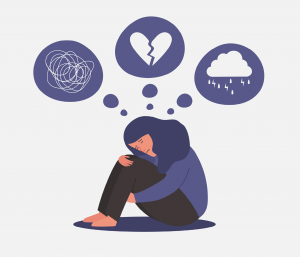Life After Caring
Below, the following topics are covered:
- Grieving
- Adjusting
- Going Back to Work
- Useful Links for Further Reading
Grieving
The way grief affects you can be different for everyone and the emotions that you may go through will vary from those of others, there is no right or wrong way to grieve. What is important is to remember that you are not alone and to ask for help if you need it.
The Mind website lists some of the emotions you may be going through, you may experience all, some or none of these and in no particular order.
- Sadness or depression. This can be brought on at the realisation of the loss and may cause you to isolate yourself whilst reflecting on things you did with your loved one or focusing on memories from the past.
- Shock, denial or disbelief. It is natural for our minds to try to protect us from pain, so following a loss some people may find that they feel quite numb about what has happened. Shock provides emotional protection from becoming overwhelmed, especially during the early stages of grief, and it can last a long time.
- Numbness and denial. You may find that you feel numb after a loss. This is natural and helps us to process what has happened at a pace that we can manage, and not before we are ready. It is natural and can be a helpful stage – the only problem being if numbness is the only thing we feel, and none of the other feelings associated with grief, as this can cause us to feel ‘stuck’ or ‘frozen’.
- Panic and confusion. Following the loss of someone close to us we can be left wondering how we will fill the gap left in our lives, and can experience a sense of changed identity.
- Anger or hostility. Losing somebody is painful and can seem an unfair thing to happen. You may find that you feel angry or frustrated and want to find something or someone to blame for the loss, so that you can try to make sense of it.
- Feeling overwhelmed. Grief can hit people immediately and with full force, potentially causing them to cry a lot or feel like they are not coping. People can worry that their feelings are so overwhelming that they don’t know how they can live with them. But over time feelings of grief tend to become less intense and people find a way to live with them.
- Relief. You may feel relieved when somebody dies, especially if there had been a long illness, if the person who died had been suffering, if you were acting as the main carer for the person, or if your relationship with the person was difficult. Relief is a normal response and does not mean you did not love or care for the person.
- Mixed feelings. All relationships have their difficulties and you may think that, because you had a difficult relationship with the person, that you will grieve less or cope better. Instead, you may find that you feel a mix of emotions like sadness, anger, guilt and anything in between.
 Adjusting
Adjusting
However long you have been looking after someone it can be incredibly hard adjusting to a life without your caring role. Having more time to yourself can be daunting. It is really important to take some time for yourself and start to adjust to your new daily routine. Many people feel even more exhausted than they did when they were in their caring role, so do rest and let others help you
As you settle into your new routine you may wish to go back to hobbies or interests that you couldn’t continue whilst caring. If you find you have spare time that you don’t know what to do with you could consider volunteering. As well as offering your skills and much-needed help to local charities, volunteering is a great way to meet new friends, gain new skills, and feel a sense of fulfillment.
Going back to work
You may have had to give up work to look after your cared for and feel nervous about returning to employment. It is important to remember the skills you have gained during your time caring and these are transferrable skills when applying for a job. For example, communication skills, time management, budgeting and risk management.
Useful links for further reading
https://www.gov.uk/after-a-death/organisations-you-need-to-contact-and-tell-us-once
https://www.carersuk.org/help-and-advice/practical-support/when-caring-ends/life-after-caring
https://www.bereavementadvice.org/topics/what-to-do-when-someone-dies/
https://www.mindinsomerset.org.uk/news/bereavement-support-during-the-covid-19-pandemic/
https://www.mariecurie.org.uk/professionals/working-in-partnership/marie-curie-in-somerset
https://www.nhs.uk/services/service-directory/cruse-bereavement-care-somerset-area/N10956584
https://wellbeingsouthsomerset.org/category/bereavement/
https://www.somersetmentalhealthhub.org.uk/somerset-suicide-bereavement-support-service

